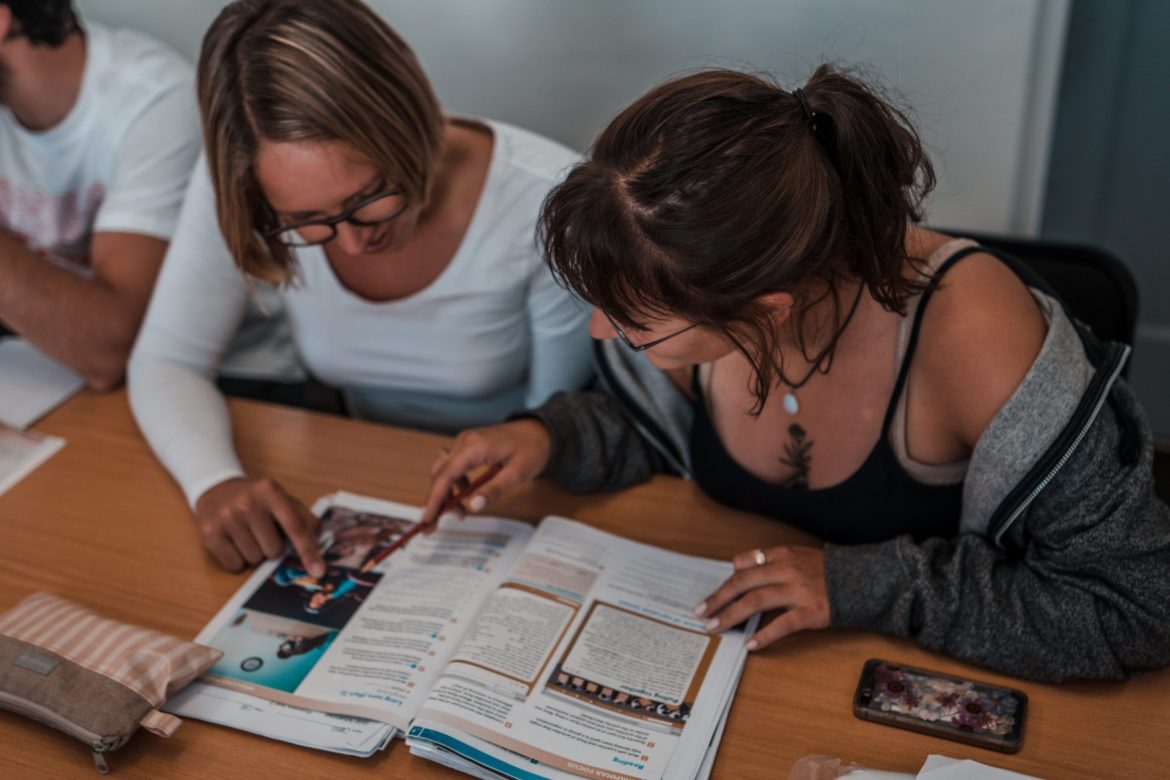

Learning to speak a new language goes beyond memorising vocabulary lists and getting familiar with different grammar systems. You also need to be able to communicate and make yourself understood. This is where pronunciation plays a massive role. If you want to know how to improve your pronunciation when learning English, you’re in the right place!
1. Listen to English speaking
Babies learn to speak by taking in all the sounds around them. You will often find that they use pronunciations from all over the world depending on what they’re watching on TV! Because of this, we know that listening is one of the best ways to improve your English pronunciation.
Watch movies and series in English and listen to English podcasts. If specific words or phrases stand out to you or make you laugh, practice saying them with the same pronunciation and tone of voice.
We love The InFluency Podcast. You don’t need a streaming service to listen, as all their episodes are also available on their website. There are over 200 episodes that are each around five minutes long. They range from break downs of individual words to pronunciation techniques and building confidence speaking in another language.
2. Record yourself
We know this is a daunting task for most, but it can be extremely helpful for improving pronunciation. Choose a phrase from your coursebook or a film or series episode you watched recently. Practise a few times and then record yourself.
Listen back on your recording and write down any pronunciation mistakes, pauses of uncertainty and tone that doesn’t feel quite right. Then, spend five to ten minutes practising these isolated elements.
Record yourself again and compare your two recordings for a confidence boost in your progress.
3. Exercise your mouth
When a sound doesn’t exist in your native language, it’s extremely difficult to pronounce words that contain those sounds when you’re learning a new language. This is because the muscles in your mouth needed to make that sound are literally out of practice!
Find out about the mechanics of a sound you’re struggling with. For example, a b is made by bringing your lips together, and a v sound is made by placing your bottom lip under your front
teeth.
Just like learning to dance or play sports, practice makes perfect, especially when it comes to the physical mechanics.
Ask your teacher or Google diagrams so help you know exactly how to do this for each sound you’re struggling with.
4. Practise minimal pairs
A minimal pair consists of two words that are identical, aside from one sound. Practising these are great for pronunciation because your task will be to make these words sound different, by learning to distinguish between one single sound at a time.
A common example are the words ‘ship’ and ‘sheep’. They are extremely similar, the only difference being the vowel sound in the middle. Say them both, and if they sound the same, practise trying to change that vowel sound for the one that needs work.
Google a list of minimal pairs and practise a couple every day.
5. Practice with a friend
Much like learning the vocabulary and grammar of the language itself, pronunciation needs practise. You can use the above points to practise by yourself, but also try to chat to your friends
at LAL School in English.
Making yourself understood is the most important part of learning a new language, and chatting in that language will give you an idea of how well you’re communicating what you’ve learnt.
Take mental notes of where you’re getting stuck and keep practising!
Are you looking for an integrated and immersive way to learn to speak English? LAL School offers a unique experience that combines learning English with travelling to one of the most beautiful cities in the world, Cape Town. Find out about the courses we have available here.
